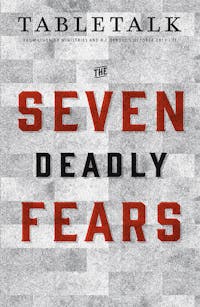
Request your free, three-month trial to Tabletalk magazine. You’ll receive the print issue monthly and gain immediate digital access to decades of archives. This trial is risk-free. No credit card required.
Try Tabletalk NowAlready receive Tabletalk magazine every month?
Verify your email address to gain unlimited access.
Dr. John Gerstner, my esteemed mentor, certainly had a way of getting my attention and helping me to think more clearly. I still remember when I told him that I thought the problem of evil is irresolvable. Having noted that the best apologists and theologians in church history haven’t answered all the questions raised by the existence of evil in this world, I told him that no one would ever solve the problem on this side of eternity. He turned and rebuked me. “How do you know the problem of evil will never be solved?” he asked. “Perhaps you or another thinker are the one God has appointed to solve this issue.”
With all due respect to Dr. Gerstner, I think he overestimated his students. I haven’t changed my opinion on the problem of evil since that conversation. In the many years I’ve taught philosophy, apologetics, and theology, and in the many conversations I’ve had with hurting people, a full answer to the problem of evil remains elusive. If anything, recent events make the problem seem more acute. In the past year alone, we’ve dealt with terrorists bombing the Boston Marathon as well as the Sandy Hook Elementary School shooting in Connecticut. Hurricane Sandy killed nearly 300 people in the Northeastern United States. We could also mention the hundreds of thousands who died in tsunamis in 2004 and 2011. The list is almost endless.
Putting a human face on evil can make it more understandable—it’s no surprise that evil people do evil things. Nature’s violence can be more troubling. How do we deal with natural disasters that do not respect persons but rather indiscriminately claim the lives of the elderly, infants, and the handicapped along with able-bodied children and adults? “How,” many people—even many Christians—ask, “could a good God allow such things to happen?”
There’s been no shortage of speculation in the attempt to answer these questions. Well-meaning individuals have suggested countless theodicies—attempts at justifying and vindicating God for the presence of evil in the world. In his eighteenth-century book Theodicy, philosopher Gottfried Leibniz tried to explain evil by suggesting that we live in the “best of all possible worlds.” Other thinkers have said evil is necessary to make us virtuous people or to preserve the reality of free will. Such answers fail to satisfy, and they usually sacrifice the sovereignty of God in the process.
I don’t think God has revealed to us a full and final answer to the problem of evil and suffering. However, that doesn’t mean that He’s been silent on the issue. Scripture does give us some helpful guidelines:
First, evil is not an illusion—it’s all too real. Some religions teach that evil is unreal, but the Bible never minimizes the truth of misery and pain. Moreover, the biblical characters show us that a stoic detachment from evil is not the right response. They tear their clothing, offer up lamentations to God, and cry real tears. Our Savior Himself walked the Via Dolorosa as the Man of Sorrows who knew our grief.
Second, God is not capricious or arbitrary. He does not act irrationally, nor does He show or permit violence purposelessly. That doesn’t mean we always know why a particular evil occurs at a given place or time. Because we don’t know all the reasons behind each particular evil, we can’t make facile connections between guilt and disaster, between a person’s sin and the evil that befalls him. Texts including the book of Job and John 9 keep us from universally declaring that pain is a specific punishment for specific sin. That means that when inexplicable disasters occur, we must say with Martin Luther, “Let God be God.” Job’s cry that “the Lord gave, and the Lord has taken away; blessed be the name of the Lord” (Job 1:21) was not a superficial display of piety or a denial of pain. Instead, Job bit his lip and clenched his stomach as he remained faithful in the middle of tragedy and unmitigated suffering. Job knew who God was, and he refused to curse Him.
Third, this isn’t the best of all possible worlds. This world is fallen. Suffering is here only because sin has marred an otherwise good creation. Of course, that doesn’t mean all suffering is tied to a particular sin or that we can draw a one-to-one correlation between the degree of a person’s sin and the degree of his suffering. However, suffering belongs to the full complex of sin that people visit upon this world. As long as creation suffers from the violence of men, it returns this violence. The Bible tells us that creation gets angry with its human masters and exploiters. Instead of stewarding the earth wisely and replenishing it, we exploit and pollute it. Until Christ returns with the new heavens and earth, we’ll deal with tempests, earthquakes, and floods. Until then, we’ll yearn for a renewed creation.
Finally, evil is not ultimate. Christianity never denies the horror of evil, but neither does it regard evil as having any power above or equal to God. Scripture’s final word on evil is triumph. Creation groans as it awaits its final redemption, but this groaning is not futile. Over all creation stands the resurrected Christ—Christus Victor—who has triumphed over the powers of evil and will make all things new.
